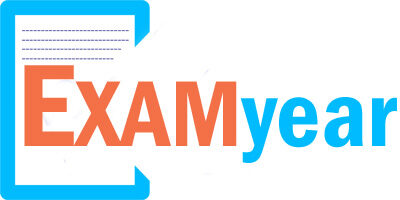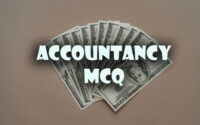Typical Questions on Accountancy
1. The amount which is primarily intended for meeting emergent contingent expenditure is termed as _________.
(a) Secured Advance
(b) Temporary Advance
(c) Permanent Advance
(d) Lump-sum Advance
2. The quantum of permanent advance for any organization should not as a rule exceed the monthly average of contingent expenditure for the preceding __________ months.
(a) 3
(b) 6
(c) 12
(d) 24
3. Purchases shall be made in the most _________ manner in accordance with the definite requirements of the public service.
(a) Appropriate
(b) Systematic
(c) Suitable
(d) Economical
4. Purchase orders shall not be split up to avoid the necessity for obtaining the ________ of higher authority required with reference to the total amount of the orders.
(a) Approval
(b) Consent
(c) Order
(d) Sanction
5. Receipt and Issue of stores are dealt with under GFR __________
(a) 105
(b) 106
(c) 107
(d) 106 & 107, respectively.
6. Every officer receiving money on behalf of the Government should maintain a cash book in Form T.R. ________.
(a) 1
(b) 2
(c) 3
(d) 4
7. All monetary transactions should be entered in the cash book as soon as they occur and attested by the _________ in token of check.
(a) Drawing & Disbursing Officer
(b) Head of the Office
(c) Head of the Department
(d) Subordinate Officer
8. The cash book should be closed regularly and completely checked. The Head of the Office should verify the totalling of the cash book or have this done by some responsible _________ other than the writer of the cash book and initial it as correct.
(a) Officer
(b) District Officer
(c) Sub-Divisional Officer
(d) Subordinate
9. The totalling of the cash book should be verified and initialled it as correct by the ________.
(a) Writer of the cash book
(b) Drawing & Disbursing Officer
(c) Subordinate Officer
(d) Head of the Office.
10. When Government moneys in the custody of a government officer are paid into the Treasury or the Bank, the Head of the Office making such payments should compare the Treasury Officer’s or the Bank’s receipt on the challan or his pass book with the entry in the _________ before attesting it, and satisfy himself that the amount have been actually credited into the Treasury or the Bank.
(a) Accounts Register
(b) Subsidiary Book
(c) Register for Accounts Statement
(d) Cash Book
11. An erasure or overwriting of any entry once made in the cash book is strictly ________.
(a) Warned
(b) Avoided
(c) Prohibited
(d) Unbecoming.
12. All receipts must be written in figures and in words in the original and such other copies of challans in Form T.R. — 6, prescribed in Rule _________.
(a) 92
(b) 93
(c) 94
(d) 95
13. Subject as provided in the Rules 76 to 86, the detailed procedure to be adopted in any particular department of the Government with regard to the realization of the Government dues and granting of receipts for the money realized may be prescribed by departmental _______.
(a) Notification
(b) Orders
(c) Instructions
(d) Regulations
14. Save as hereinafter provided, Government money not in the custody of a Central Treasury or the Bank shall be kept in strong treasure chest secured by _______ locks of different patterns.
(a) Two
(b) Three
(c) Four
(d) Five
15. A bill is a ____________ of claims against the Government containing specification of the nature and amount of the claim, either in gross or by items, and includes such a statement presented in the form a simple receipt.
(a) Document
(b) Record
(c) Form
(d) Statement
16. A bill or a cheque becomes a voucher only when it is receipted and stamped “_______”.
(a) Noticed
(b) Acknowledged
(c) Seen
(d) Paid
17. Receipts, duly stamped, where necessary, for all other payments made on bills shall be given at the time of ___________.
(a) Sanction
(b) Release
(c) Disbursement
(d) Payment
18. No claims against the Government, other than those by one department against another or by a State Government not preferred within _______ years of their becoming due, can be presented without an authority from the Accountant General.
(a) Two
(b) Three
(c) Four
(d) Five
19. When the name of a Government servant appears for the first time in a pay bill, the bill shall be supported by a Last Pay Certificate in Form T.R – ________ prescribed for the purpose.
(a) 21
(b) 36
(c) 70
(d) 73
20. The travelling allowance bills of Government servant proceeding on tour shall be presented at convenient intervals during the period of their tour or immediately on return to the headquarters and, as far as practicable, ________ before if the tour has been completed before that date.
(a) 31st March
(b) 30th April
(c) 30th June
(d) 31st July
21. Pay and allowances can be drawn for the day of the Government servant’s death ; the ________ at which death takes place has no effect on the claim.
(a) Forenoon
(b) Midday
(c) Afternoon
(d) Hour
22. Contingent charges incurred on the public service are divided into the following classes :-
(a) Two classes
(b) Three classes
(c) Four classes
(d) Five classes
23. No money shall be drawn from the treasury unless it is required for immediate disbursement. It is not permissible to draw money from the treasury in anticipation of demands or to prevent the lapse of __________.
(a) Budget provision
(b) Budget grants
(c) Fund
(d) Sanctioned amount.
24. Save as hereinafter provided in this rule, no pay of any kind and no additions to pay may be drawn on bills for ____________.
(a) Contract contingencies
(b) Countersigned contingencies
(c) Special contingencies
(d) Contingent expenditure
25. A register of contingent expenditure shall be kept in each office and the initials of the Head of the Office, or of a Gazetted Officer to whom this duty has been delegated by the ______, shall be entered against the date of payment of each item.
(a) Head of the Department
(b) Head of the Office
(c) Drawing & Disbursing Officer
(d) Subordinate Officer
26. The standard for of the contingent register will be as in Form T.R. __________.
(a) 9
(b) 19
(c) 29
(d) 39
27. Sub-vouchers for petty contingent expenditure shall be prepared in Form T.R. ____
(a) 10-A
(b) 20-A
(c) 30-A
(d) 40-A
28. Officers whose contingent bills do not require countersignature and who do not embody in their bills charges of any officer dealing separately with the treasury need not submit monthly bills; they should draw money from the treasury by bills in Form T.R. ______.
(a) 20-A
(b) 30
(c) 30-A
(d) 40
29. Charges regulated by scales and special contingencies which require the previous sanction of superior authority before they can be incurred, shall be drawn in the abstract bill Form T.R. – _________.
(a) 31
(b) 31-A
(c) 32
(d) 32-A
30. Except in the case of contingencies requiring countersignature before payment, contingent charges falling under this group may be drawn from the treasury by presenting abstract bills in Form T.R. – __________.
(a) 31
(b) 31-A
(c) 32
(d) 32-A
31. Pension payments to Central Government pensioners are made out of ——-
(a) The Consolidated Fund of India
(b) Contingency Fund of India
(c) The Public Account of India
(d) The Pension Fund of India.
32. Service pension payable in India may be drawn from ————
(a) The Pay and Accounts Office responsible for payment of last dues
(b) Any other authorized office of disbursement
(c) Authorized Public Sector Banks
(d) All of the above.
33. Provisional pension is payable by ——-
(a) The Pay and Accounts Office
(b) The Head of Office
(c) The Disbursing Officer
(d) The Accounts Officer.
34. Under the scheme for simplification of Pension Payment Procedure, the responsibility for payment and accounting of pension has been taken over by ——–
(a) Central Pension Accounting Office
(b) The Pension Fund Regulatory and Development Authority
(c) The Accountant General
(d) The Public Sector Banks.
35. Payment of pension can be made only upon Pension Payment Order issued by ——
(a) The Head of Office
(b) The Pay and Accounts Office
(c) The Accountant General
(d) None of the above
36. In case of commutation of pension, the reduced amount of pension and the date of commutation shall be noted on the Pension Payment Order by ———
(a) The Accountant General
(b) The Disbursing Officer
(c) The Head of Office
(d) The authorised bank
37. In case of revision, a formal letter of amendment to the PPO shall be issued by ———
(a) The PAO to the Accountant General through Treasury Officer
(b) The Treasury Officer to the PAO through Accountant General
(c) The Accountant General to the Treasury Officer through PAO
(d) The PAO to the Treasury Officer through Accountant General
38. Where pension is disbursed by a Public Sector Bank, the letter of amendment to PPO shall be issued by —–
(a) The PAO
(b) The Accountant General
(c) The Treasury Officer
(d) The Bank
39. Pensions fixed at monthly rates (except for the month of March) is payable ———
(a) On the last working day of the month to which they relate
(b) On the first working day of the next month
(c) On or after the last working day of the month to which they relate
(d) None of the above
40. Pension for the month of March shall be payable ——
(a) On the last working day of the month of March
(b) On the first working day of the month of April
(c) On or after the last working day of the month of March
(d) On or after the first working day of the month of April
41. “Administrative Approval” means the formal acceptance by the Department concerned of the proposal for a scheme or project or original work (other than a petty work costing Rs. 5,000/- or under) to be undertaken for the Department either by the Public Works Department or the Department to which the work may have been assigned by the Governor. Taken with the provision of funds in the budget for the specific work, it operates as a financial sanction to the work as defined in Rule ——
(a) 2 (a)
(b) 2 (b)
(c) 2 (c)
(d) 2 (e)
42. Financial Year” means —–
(a) 1st January to 31st December
(b) 1st March to 28th or 29th February
(c) 1st April to 31st March
(d) 1st July to 30th June
43. The sanctioning authority should also indicate on the body of the sanction how the fund is to be ___________
(a) Earmarked
(b) Met
(c) Incurred
(d) Provided
44. The expenditure proposals should not be bifurcated merely for the purpose of bringing them under delegated powers, so as to _______ sanction from a higher competent authority.
(a) Get
(b) Accord
(c) Obtain
(d) Evade
45. The exercise of a subordinate authority of the power to sanction expenditure is subject to __________ of any general or special direction which the authority delegating powers may issue at any time whether generally or in reference to a particular case.
(a) See
(b) Consider
(c) Follow
(d) Observance
46. Provided that the copies of the sanctioning memorandum for the Accountant General, Manipur shall be forwarded by an Officer not below the rank of Under Secretary duly signed by him,”__________” in the case of Administrative Department.
(a) In ink
(b) In pencil
(c) In ball-pen
(d) None of the above
47. The sanctioning authority should in each case intimate to the Accountant General how the expenditure is proposed to be _________.
(a) Sanctioned
(b) Accorded
(c) Incurred
(d) Met
48. The Economy Board consist of ———-
(a) Two officers
(b) Three officers
(c) Four officers
(d) None of the above
49. Who is the Member-Secretary of the Public Investment Board ?
(a) Chief Secretary
(b) Commissioner/Secretary (Planning)
(c) Commissioner/Secretary (concerned Administrative Department
(d) Commissioner / Secretary (Finance)



